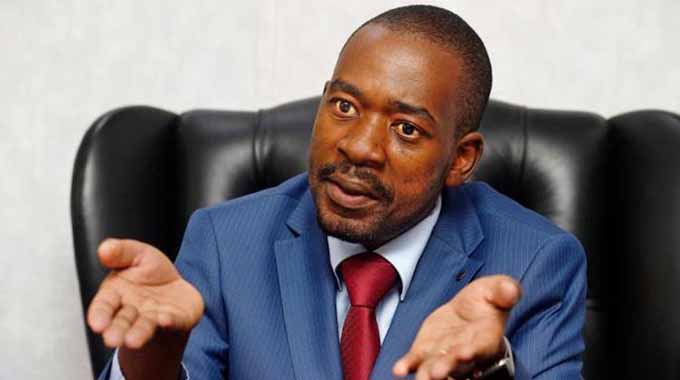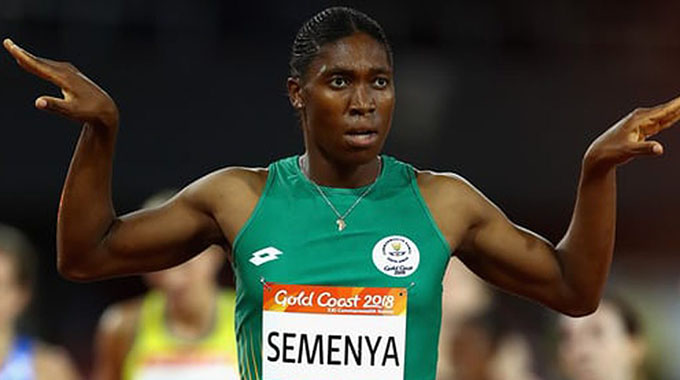Rejecting poll results a threat to democracy

Reason Wafawarova On Monday
After World War II western large mass parties dominated democracies; and these parties held the structures of the state.
To succeed in being close to the lives of individual citizens, these parties heavily relied on the network of intermediary organisations such as unions, corporations and party media.
This created an extremely stable system, with great party loyalty and predictable voting behaviour. We see today that our political parties are linked to such groups as the civic society, labour unions, media houses, student unions, churches, and so and so forth.
The idea is to reach out to members of these groupings and secure their loyalty.
So we get these politicians who say, “God is in it” when describing their political careers, and the idea is to secure the loyalty of members of the Christian community. In the 1980s and 1990s we began to have the free market mantra shaping political discourse.
Party newspapers disappeared in the West, state broadcasters were either privatised or they adopted market thinking. The daily share price index of public opinion was arbitered by viewing, reading and listening figures.
Commercial mass media emerged as the most important builders of social consensus, the way social media has become in the second decade of the 21st Century. Citizens have become consumers, and elections have become hazardous, like in our case.
Political parties are becoming less of intermediaries between people and power, settling into the fringes of state apparatus.
This is why opposition leader Nelson Chamisa says, “ZANU-PF is not governing alone. We have our people there in the system.”
Once a political party controls state apparatus there has to be a way to retain the place; so they turn to the voter every few years to top up their legitimacy. Elections have become a battle fought out in the media for the favour of voters.
Nelson Chamisa has relentlessly thanked the media for fighting in his corner in the lead up to the July 30 Elections, except of course The Herald.
The passion aroused among our people is diverting attention from a far more fundamental emotion to an increasing irritation with anything and everything pertaining to politics. This is why we remain polarised and divided.
In 2004, British sociologist Colin Crouch came up with the term “post-democracy” to describe the new order of political parties.
Under this model, while elections certainly exist and can change governments, public electoral debate is a tightly controlled spectacle, managed by rival teams of professionals and experts in the techniques of persuasion.
These teams often consider a small range of issues exclusively selected by politicians and the elites they represent. The mass of citizens plays a passive, quiescent part, responding only to the signals given them.
The post democratic state could be described by what Italy became under Silvio Berlusconi. Generally civil society has become weaker in the West and the gap between citizens and the state is widening. Increasingly citizens resemble more the citizen of the 19th Century.
After the rise of the political parties, the introduction of universal suffrage, the rise and fall of organised civil society and the dominance of commercial media, another factor has now been added: social media.
At the beginning of the 21st century, citizens could follow the political theatre, minute by minute, on radio, television or the Internet, but today they can respond to it from second to second and mobilise others. We saw how citizens mobilised each other during the Arab Spring, and we have seen an attempt to imitate the pattern by some African opposition politicians in countries like Kenya and Zimbabwe.
We have this cacophony resulting from the new culture of immediate reporting, accompanied by instant feedback. The scrutiny on public figures and the elected politician has never been any tenser.
The appeal of a proposal can now be measured instantly, and politicians like Donald Trump use Twitter so well to see what the public thinks. It is easy for the politician to see how many people the citizen can whip through social media.

Mr Donald Trump
This new technology has given people a voice, but the nature of this new political involvement has made elections creak at the joints.
The independence of Electoral Commissions has become so deeply compromised by the sudden involvement of everyone in the electoral process.
There is reinforcement between commercial and social media, as we see more and more the tweets of prominent politicians becoming sources of news for commercial media, and conversely social media spreading news from commercial media.
Tough competition, loss of advertising revenue and falling sales prompt the media to produce increasingly vehement reports about increasingly exaggerated conflicts and stories.
For radio and television, national politics has become a daily soap opera, and while editors determine to some extent the framing, the script and the typecasting, politicians, with varying degrees of success, try to slant things this way or that.
Ever influential politician knows which media house to manipulate for positive coverage of their views, and that is not unique to despots and dictators in totalitarian states.
The most popular politicians are those who succeed in altering the script and reframing the debate – in other words, those who can bend the media to their will.
We lost count of the number of press conferences held by Nelson Chamisa when he wanted to tell us there was only one possible and acceptable outcome for Election 2018 — his victory; even without an accompanying victory for his makeshift political outfit, the MDC Alliance. Chamisa sold this script far and wide, and we ended up at the Constitutional Court so his views could only be debunked at law.
The idea of disputing election result by opposition African politicians is phenomenally common. It is a strategy to keep the collective hysteria of the election fever permanent all the way to the next election.
This has serious consequences for the workings of democracy. Efficiency suffers under the electoral calculus, legitimacy suffers under the continual need to distinguish oneself, while time and again, the electoral system ensures that the long term and the common interest lose out to the short term and party interests.
Elections were once invented to make democracy possible, but in these circumstances they seem to be a hindrance.
How many times has ZANU-PF done short-term “pro-people” projects, only to abandon or reverse them after an election?
Border Gezi’s “employment creation loans,” Eliot Manyika’s “youth empowerment projects,” and Patrick Zhuwao’s “Community Share Schemes” easily come to mind; and so does Saviour Kasukuwere’s “Housing stands.”

Saviour Kasukuwere
We hope Command Agriculture projects will be long term and more sustainable.
Since we have reduced democracy to selecting representatives, and reduced representative democracy to mean simply voting, a valuable system is now mired in deep difficulties.
Winning the next election has become more important than fulfilling the promises made in the last. Making the best of the system we have is becoming increasingly difficult. What kind of democracy is appropriate to an era of fast and decentralised communication?
How should the government deal with all those articulate citizens who stand shouting from the sidelines through social media? We have seen leaders like Uhuru Kenyatta and ED Mnangagwa joining citizens on Facebook, but how is that working for democracy?
Imagine having to develop a system today that would express the will of the people. Would it really be a good idea to have them all queue up at polling stations every five years with a bit of card in their hands and go into a dark booth to put a mark next to names on a list, names of people about whom restless reporting had been going on for months in a commercial environment that profits from restlessness?
We care deeply about our community, and we as people want to be heard. Maybe we can return to the central principle of Athenian democracy; drafting by lot, or sortition. In that era the majority of public functions were assigned by lot.
Renaissance states such as Venice and Florence worked on the same basis and experienced centuries of political stability.
With sortition, you do not ask everyone to vote on an issue few people really understand, but you draft a random sample of the population and make sure they come to grips with the subject matter in order to take a sensible decision.
A cross-section of society that is informed can act more coherently than an entire society that is uninformed.
This perhaps brought about the idea of representative democracy or parliamentary democracy, but do our parliamentarians always act in our best interest?










Comments